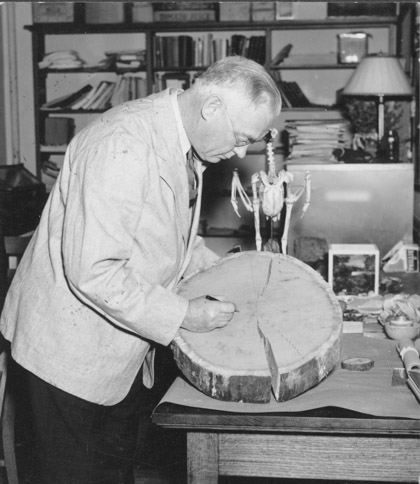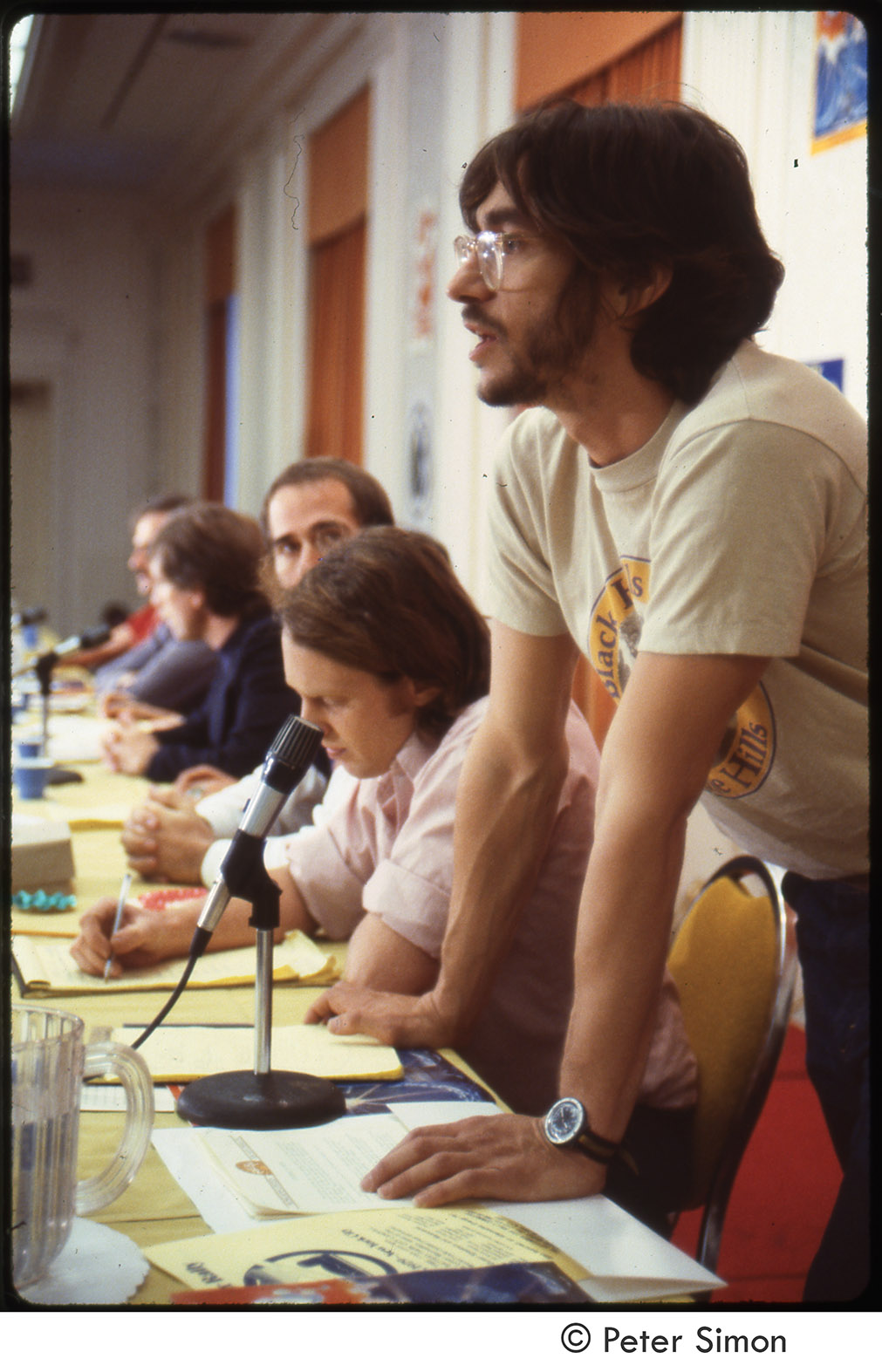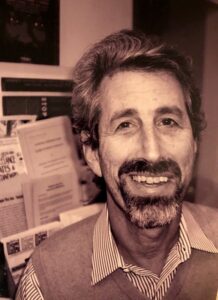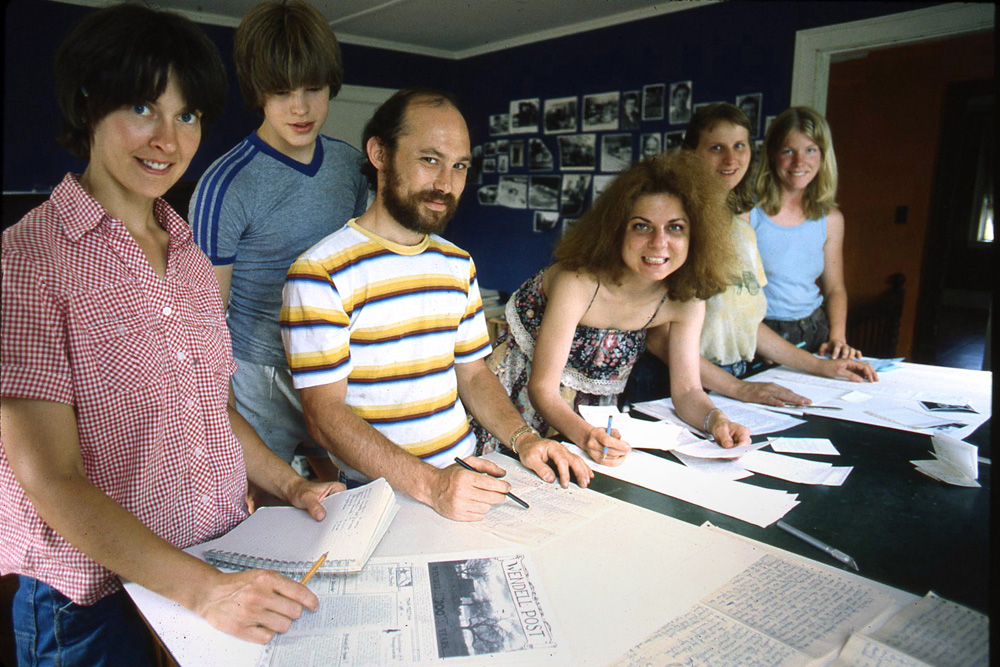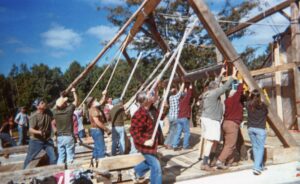 Citizens of Wendell raising barn of Jonathan von Ranson
Citizens of Wendell raising barn of Jonathan von Ranson
In 1978, after years of working in the fast paced world of journalism, writing for Life Magazine and later serving as editor and publisher of several New England newspapers, Jonathan von Ranson was burnt out. In the summer of that year, after divorcing his wife Linnea and selling his newspaper business, von Ranson moved from Newington, Connecticut to a property in Wendell, Massachusetts. It was here, two miles off a maintained state forest road, that he erected a tent and began constructing a stone house.
To von Ranson, the quiet serenity of rural Massachusetts offered refuge from the hustle and bustle of his previous life. An advocate of subsistence living, he and his second wife Susan fed and sheltered themselves in the home they built together. Von Ranson established himself as a local journalist by writing for the Wendell Post, a humble town newspaper known for its distinctive local perspective. He also contributed to local publications like the Greenfield Recorder, usually penning op-eds about environmental issues both local and global. A passionate craftsman, his writing in other publications focused on sustainable home-building. Von Ranson’s personal writings, particularly those he refers to as his “unintelligible nighttime musings,” reveal a sensitive and introspective man with a spiritual connection to the land he cultivated.
Von Ranson held various positions in Wendell town government, taught fourth graders homesteading skills, and held workshops ranging from writing to masonry, becoming a pillar of the community in his small rural town. He expressed his environmental, political and social convictions in ways large and small, whether it was reusing paper by typing manuscripts on the back of fliers, or refusing to pay taxes in protest of military spending.
The Jonathan von Ranson papers document von Ranson’s time as a journalist, simple living advocate/homesteader, and Wendell/Franklin County activist and community leader. This is reflected through clippings of many of von Ranson’s articles for Maine, Connecticut and Franklin county newspapers, meeting agendas and correspondence from his various positions in Wendell town government, and schematics for his first stone house built in 1978/1979 and his simple living apartment completed in 2015. The collection also includes confessional hand-written manuscripts, fliers for Wendell community events, von Ranson’s Peace Corp application which reveals a breadth of biographical information, and even self-authored root cellaring guides. Other material reveals his involvement in a myriad of social and political groups dealing with environmentalism, the feminist men’s movement, rural development, policing, and much more.
Gift of Jonathan von Ranson, 2024


